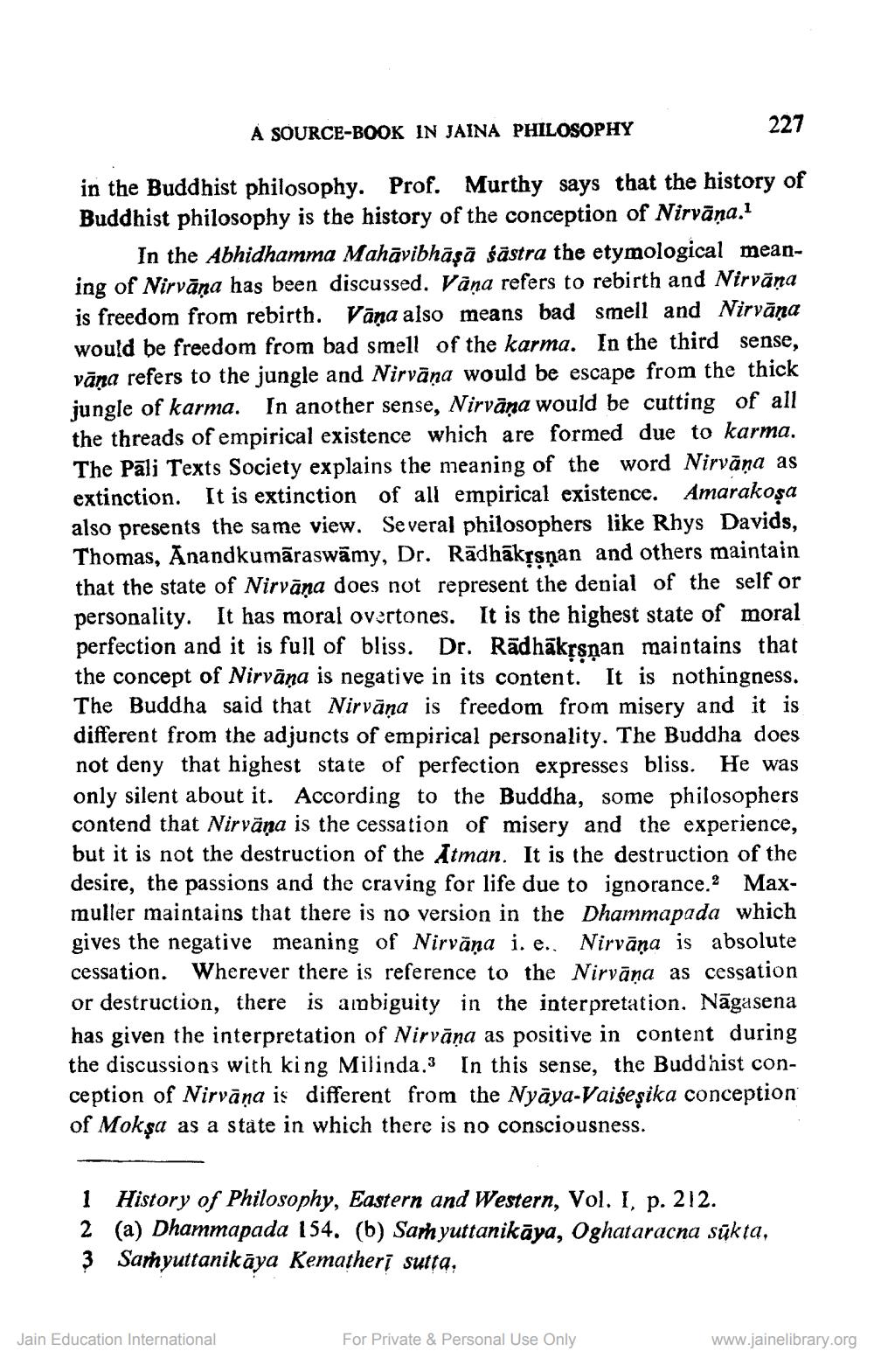________________
A SOURCE-BOOK IN JAINA PHILOSOPHY
227
in the Buddhist philosophy. Prof. Murthy says that the history of Buddhist philosophy is the history of the conception of Nirvāņa.
In the Abhidhamma Mahāvibhāsā sāstra the etymological meaning of Nirvana has been discussed. Vāna refers to rebirth and Nirvāna is freedom from rebirth. Vāna also means bad smell and Nirvana would be freedom from bad smell of the karma. In the third sense, vāna refers to the jungle and Nirvāṇa would be escape from the thick jungle of karma. In another sense, Nirvana would be cutting of all the threads of empirical existence which are formed due to karma. The Pāli Texts Society explains the meaning of the word Nirvana as extinction. It is extinction of all empirical existence. Amarakosa also presents the same view. Several philosophers like Rhys Davids, Thomas, Anandkumāraswāmy, Dr. Rādhākrsnan and others maintain that the state of Nirvāna does not represent the denial of the self or personality. It has moral overtones. It is the highest state of moral perfection and it is full of bliss. Dr. Rādhākrsnan maintains that the concept of Nirvana is negative in its content. It is nothingness. The Buddha said that Nirvāna is freedom from misery and it is different from the adjuncts of empirical personality. The Buddha does not deny that highest state of perfection expresses bliss. He was only silent about it. According to the Buddha, some philosophers contend that Nirvana is the cessation of misery and the experience, but it is not the destruction of the Atman. It is the destruction of the desire, the passions and the craving for life due to ignorance.2 Maxmuller maintains that there is no version in the Dhammapada which gives the negative meaning of Nirvāṇa i. e.. Nirvana is absolute cessation. Wherever there is reference to the Nirvāṇa as cessation or destruction, there is ambiguity in the interpretation. Nāgasena has given the interpretation of Nirvāna as positive in content the discussions with king Milinda.3 In this sense, the Buddhist conception of Nirvana is different from the Nyāya-Vaiseșika conception of Moksa as a state in which there is no consciousness.
1 History of Philosophy, Eastern and Western, Vol. I, p. 212. 2 (a) Dhammapada 154. (b) Sarh yuttanikāya, Oghataracna sūkta, 3 Saryuttanikāya Kematherį sutta,
Jain Education International
For Private & Personal Use Only
www.jainelibrary.org




